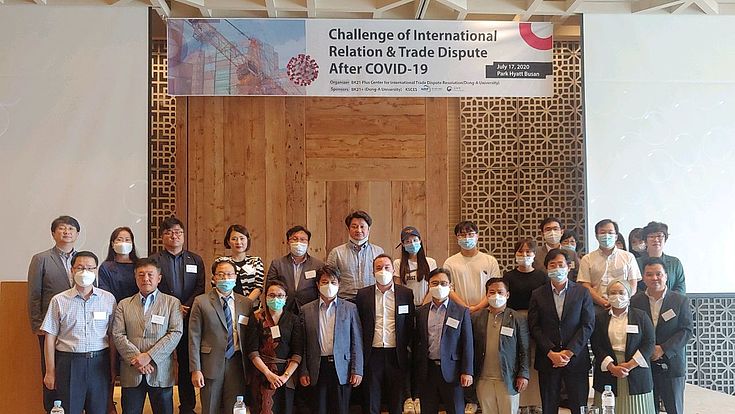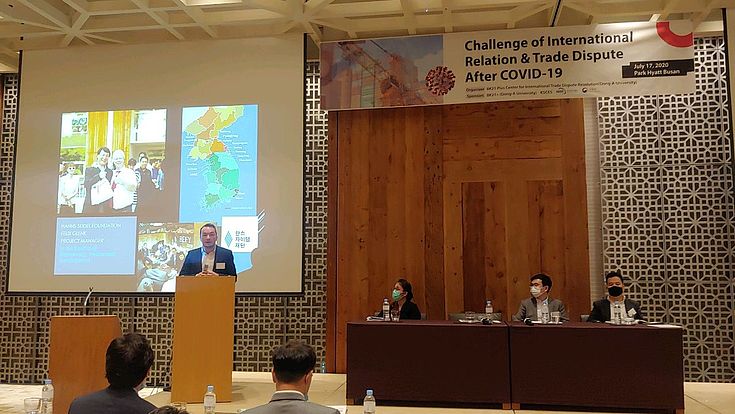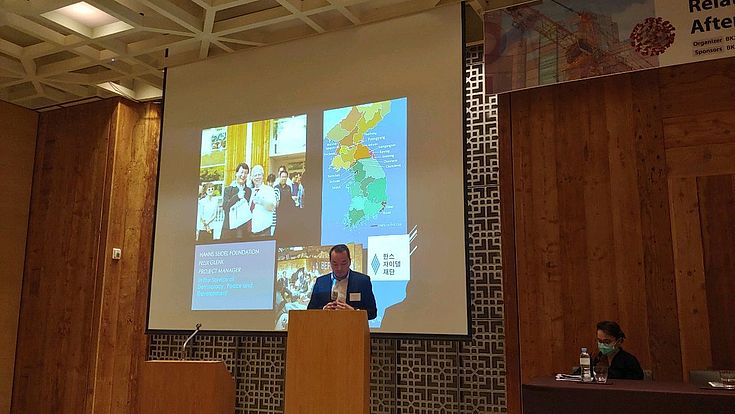Conference
International Relations and Trade Dispute after COVID-19

“Covid-19 can lead to a change of public diplomacy”, mentioned Professor Jongpil Chung, the secretary of the Busan Foundation for International Cooperation, in his keynote speech, also referring to fears that nationalism and de-globalization could revive. Institutions, such as universities, are more important than ever to face these challenges. Pando Son, Director of BK21 Plus Center for International Trade Dispute Resolution, then welcomed the international presenters for the session on international trade dispute after post COVID-19.
First speaker was Kusuma Dewi of the Indonesian Trade Promotion Center who summarized the trade between Indonesia and South Korea and how international agreements set the framework for trade. She pointed out that the persisting uncertainties, changes in behaviors, as well as different levels of economic development are challenges that are more present than ever, and that international frameworks, such as the World Trade Organization, are important to find adequate measures.

Subsequently, Felix Glenk from Hanns Seidel Foundation spoke about the case of North Korea. Hardly integrated in the international community, with limited trade partners and trade volume, the case is unique. While the country claims there are no COVID-19 cases domestically, independent bodies that may verify and monitor the situation are absent in the country. Also, the trade volume is historically low, with China being by far the main trade partner, but recent statistics show that the trade data is robust and stable. HSF Korea in the past offered also capacity-building in the field of international trade for North Korean officials and managers, but after international sanctions made work on the topic increasingly difficult, HSF is now focusing on environment as a topic to find common ground for exchange and cooperation. Finishing his presentation, Felix Glenk emphasized that global challenges, such as the pandemics or climate change, lead to global challenges, but can also be global chances.

The session continued with speakers focusing on “Taiwan´s countermeasures against changes in the World Trade System” and the economic relations between the Republic of Korea and Russia in the post COVID-19 era.
The second session on international relations after post COVID-19 then addressed various issues on Taiwan´s National Security, the policies of the Japanese government and the Chinese economy. All sessions were discussed by the audience and representatives of academic institutions in South Korea.
